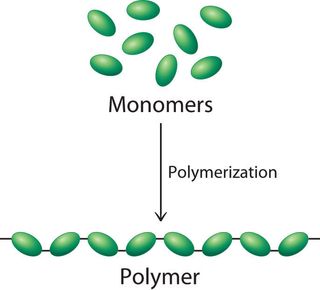Exploring the Varied Applications and Benefits of Polymers in Different Industries
Polymers, with their diverse series of residential properties and performances, have actually come to be essential in different markets, each enjoying unique take advantage of their application. Polymers. From enhancing security and performance in the automobile market to reinventing clinical tools in the medical care industry, polymers play a crucial duty. Their environmentally friendly nature is changing the landscape of sustainability methods. As we explore the midsts of polymers in electronics, we uncover innovative technologies, while their architectural integrity transforms the world of construction and facilities. The prevalent impact of polymers throughout sectors is a testimony to their flexibility and versatility, shaping the future of many industries.
Automotive Market Applications
Polymers play a pivotal function in boosting the performance and toughness of different components within the automotive field. One popular usage of polymers in the automotive industry is in the manufacturing of lightweight elements.

Medical Care Market Advantages
In numerous healthcare applications, the advantages of utilizing polymers are widely acknowledged for their diverse variety of useful properties. Polymers play a vital duty in the healthcare sector because of their adaptability, biocompatibility, and cost-effectiveness. Among the primary advantages of polymers in health care is their ability to be customized to certain demands, such as flexibility, longevity, and biodegradability, making them optimal for a variety of medical applications.
Polymer-based materials are extensively utilized in medical tools, such as catheters, implants, prosthetics, and medication delivery systems, as a result of their biocompatibility and ability to simulate natural tissues. These products can reduce the danger of allergic reactions or rejections, enhancing person safety and outcomes. Additionally, polymers are light-weight, making them appropriate for wearable medical tools and making sure person convenience.
In addition, polymers allow the development of innovative treatment approaches, such as hydrogels for tissue engineering and nanocomposites for targeted medication delivery. Their simplicity of handling and sanitation makes them essential for maintaining high criteria of hygiene in healthcare settings. On the whole, the varied advantages of polymers add dramatically to improvements in medical modern technology and client treatment.
Ecological Benefits of Polymers

Furthermore, polymers can contribute to energy savings as a result of their light-weight nature. In markets wikipedia reference such as transportation, light-weight polymer materials can aid minimize gas consumption and greenhouse gas discharges. Furthermore, polymers can enable the advancement of energy-efficient products such as insulation materials that boost energy conservation in structures.
Furthermore, polymers play an essential role in minimizing water contamination. The usage of polymer-based filtration systems can efficiently remove toxins and pollutants from wastewater, safeguarding water sources and ecological communities. Overall, the environmental advantages of polymers make them useful assets in advertising sustainability and green practices throughout different sectors.
Polymers in Electronics and Technology
Taking into consideration the raising need for cutting-edge and lasting remedies in contemporary industries, the integration of sophisticated polymer modern technologies in the world of electronic devices and technology has become an essential strategy for my latest blog post driving effectiveness and performance. Polymers have changed the electronics industry by enabling the production of lighter, much more versatile, and durable electronic tools. From mobile phones to medical gadgets, polymers play an essential function in enhancing item design and performance.
One significant benefit of polymers in electronics is their protecting residential properties, which help protect delicate electronic parts from environmental elements and electrical disturbance. In addition, polymers are crucial in the growth of flexible screens, wearable modern technology, and published electronics, supplying endless possibilities for producing wise and interconnected devices.
Furthermore, the usage of polymers in digital product packaging has actually led to improvements in miniaturization and thermal monitoring, enhancing the general efficiency and reliability of digital systems. As innovation remains to progress, the adaptability and flexibility of polymers will most certainly drive better innovation in the electronic devices industry, shaping the future of technology.
Role of Polymers in Building and Framework
The combination of advanced polymer materials in building and facilities projects has actually revolutionized the special info means structures are created and developed in modern times. Polymers use numerous advantages in the construction industry as a result of their convenience, durability, and cost-effectiveness. One crucial function of polymers in construction is their use in finishings and sealants, offering defense against ecological elements such as moisture, UV radiation, and rust. Furthermore, polymers are used in the manufacturing of light-weight and high-strength composite products, improving the architectural honesty of buildings while decreasing general weight.
In addition, polymers play a vital function in sustainable building practices by making it possible for the advancement of energy-efficient frameworks. Insulating materials made from polymers assist manage indoor temperature levels, decreasing the demand for heating and cooling down systems and eventually decreasing power intake - Polymers.
Final Thought
To conclude, polymers play an important role in different sectors such as vehicle, health care, environmental, electronics, and construction. Their versatile residential or commercial properties make them important in creating cutting-edge solutions and items. From boosting gas performance in automobiles to improving clinical tools, polymers offer many benefits. In addition, their effect on decreasing waste and promoting sustainability highlights their relevance in modern applications. The extensive usage of polymers shows their considerable payment to advancing modern technology and improving quality of life.